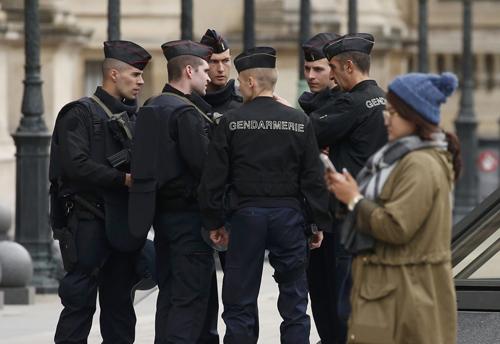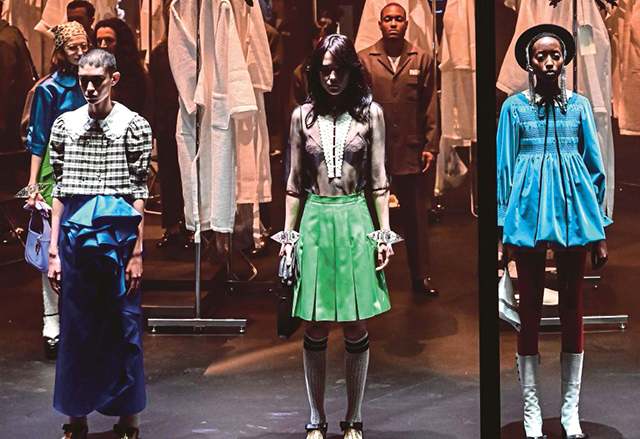You are here
Tourism, luxury firms count cost of Russia's recession
By Reuters - Mar 09,2015 - Last updated at Mar 09,2015
PARIS/BERLIN — Russia's lurch into recession has hit many tourism and luxury goods companies hard, forcing them to cut prices, and in turn costs, in an attempt to limit the damage.
And there are few signs things will get better soon, with a fragile ceasefire in eastern Ukraine doing little to ease international tensions over Moscow's support for pro-Russian separatists in the region.
The ruble lost almost half of its value against the US dollar last year after oil prices crashed and the West imposed sanctions on Moscow. That has crushed Russians' spending power, forcing them to cut back and put pricey holiday plans on hold.
Spending on international travel by Russians fell by 6 per cent in 2014, according to the UN World Tourism Organisation.
Russian tourists are major buyers of luxury goods, particularly in European capitals such as Milan where they are regular customers of brands such as Ferragamo, Moncler and Kering's Italian tailor Brioni.
Clerks at the menswear department of posh Milan department store Rinascente said Russian clients had virtually disappeared.
According to tax-refund company Global Blue, spending by Russian tourists fell 17 per cent last year, and plunged 51 per cent in January following a 44 per cent fall in December.
Although there was an unexpected spike in sales for some in December as Russians offloaded the fast-depreciating rubles for durable luxury goods such as Cartier watches, many brands are preparing for a tough 2015.
Italian fashion group Roberto Cavalli expects Russian sales to drop 20 per cent this year, while LVMH's watch brand Hublot has already seen sales decline 20 per cent in Russia since January, a source close to the company said.
How best to cope?
Eager to preserve client relationships, some brands have kept a lid on Russian prices at the expense of margins.
Jerome Biard, who exports Swiss watches to Russia through his distribution company LPI and represents brands such as Burberry, Michael Kors, Armani and Raymond Weil, has suffered an extra blow from a surge in the Swiss franc, but has held back from passing the costs on to customers.
"My strategy was to protect my distributors and help them empty their stocks at the end and beginning of the year, so we all agreed to sacrifice our margins," Biard said.
LVMH's Swiss luxury brand Tag Heuer, whose boutique in Ekaterinburg enjoyed record sales in December, said it kept prices relatively unchanged in Russia last year, though now plans to raise prices by around 20 per cent this month.
Several lingerie providers such as Lise Charmel have also made efforts to keep prices affordable in Russia, which has been one of their top export markets.
But some have had to cut costs to cope.
Mid-range French lingerie maker Maison LeJaby, which counts on Russia for 30 per cent of turnover, has had to shed 27 per cent of its staff, or 50 people, this month.
Upmarket watchmaker Ulysse Nardin, recently acquired by Gucci owner Kering, last month put some employees on temporary unemployment, blaming the slump in Russian business.
Tourism hit
It's been a similar story for airlines, tour groups and hotels with a big exposure to Russia.
Some hotels in Turkey have slashed prices to fill beds after arrivals from Russia dropped by more than 21 per cent in 2014, and by 22 per cent in January.
"We believe that the Russians won't come [to Turkey]," said Markus Daldrup, managing director at German tour operator Alltours, which is offering price cuts of up to 24 per cent on summer trips to Turkey.
Egypt, whose tourism sector gets 30 per cent of its business from Russia, saw a 50 per cent plunge in visits from Russians in December, and another 20 per cent in January year-on-year.
The country waived the $25 visa fee for Russians through the end of April and plans to launch a massive campaign in Russia in the next months to win back customers.
Several airlines, such as Emirates, have responded to the decline in Russian travel abroad by offering fewer flights or seats to the country.
The posh ski resort of Courchevel estimates its Russian clientele has shrunk by 20-30 per cent this year, and those that have come have spent less.
"Before, you would often see Russian clients buying bottles of wine at 6,000 euros, now they only get those for a few hundred euros," said Adeline Roux, head of tourism at the resort.
Related Articles
LONDON – European shares were steady on Monday, supported by gains in the energy sector that helped offset a slump in travel stocks followin
LA CHAUX-DE-FONDS/LE LOCLE, Switzerland — In two small Swiss towns, watchmakers are trying to strike a balance as delicate as the mechanisms
PARIS — "Nothing will ever be the same again" has been the constant refrain of the coronavirus era.But for the fashion world that may well b

















